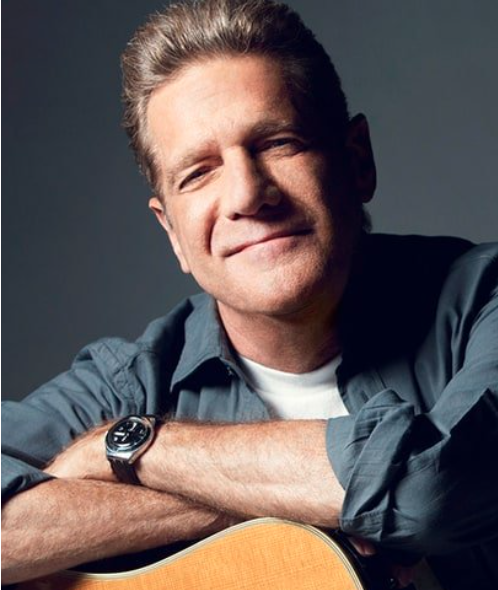Glenn Frey: Nov. 6, 1948-Jan. 18, 2016
When Glenn Frey passed on to eternity Jan. 18, 2016, the music world lost a talent that had few equals.
As a founding member of the Eagles in 1971, he brought musicianship, vocal talent, leadership and music industry acumen to a quartet that would fill the void created by the break-up of the Beatles.
After the Eagles experienced their own break-up, he enthusiastically carried on with a solo career that lasted a delightful dozen years. With Frey no longer with us, I expect that the final demise of the Eagles is upon us.
Frey died in New York City from complications following intestinal surgery. He was 67.
Born in Detroit and raised in nearby Royal Oak, Mich., Frey was inspired to become a rock musician after he saw the Beatles perform in America for the first time. He had taken piano lessons as a child, but he took up the guitar when he entered his teens. Local rock star Bob Seger became his mentor, and Frey contributed rhythm guitar and backing vocals on Seger’s first national hit, “Ramblin’ Gamblin’ Man,” in 1969.
Not long after that Frey and Seger took off for California in a move aimed to bolster their music careers.
Speaking in the documentary film “History of the Eagles,” Frey remarked, “He (Seger) said, ‘If you’re going to make it, you’re gonna have to write your own songs.’ I said, ‘Well, what if they’re bad?’ And he said, ‘They’re gonna be bad. Just keep writing and keep writing, and eventually you’ll write a good song.’”
Frey paid his dues in L.A. by scratching out songs in a Laurel Canyon bachelor pad, where Jackson Browne was his downstairs neighbor. He helped Browne finish the song “Take It Easy,” and eventually fell in with Don Henley, Randy Meisner and Bernie Leadon as a backing band for Linda Ronstadt. Next thing you know, they became a major proponent of the country-rock movement when they became the Eagles.
“Glenn was the one who started it all,” Henley said in a statement issued the day after Frey died. “He was the spark plug, the man with the plan. He had an encyclopedic knowledge of popular music and a work ethic that wouldn’t quit.”
Frey seemed to feel comfortable in a band environment, where he embraced the role of rhythm guitar/keyboard player and co-writer of songs. Notable among the songs he co-wrote are “Desperado,” Tequila Sunrise,” “The Best Of My Love,” “One Of These Nights,” Lyin’ Eyes,” “Take It To The Limit,” “Hotel California,” “New Kid In Town,” “Life In The Fast Lane” and “Heartache Tonight.”
Frey also took on the task of arranging raw songs before they got to the recording stage, earning him the nickname of the “Lone Arranger.”
When it came time for him to embark upon his solo career, Frey grabbed the chance to record more songs that carried the influence of his Detroit rhythm and blues roots. He became a master of writing and singing romantic ballads. And he reveled in a new medium that came along – the music video.
With trimmed-down hair and shaved-off whiskers, Frey nabbed several television acting roles, too. As a guest star during the first season of “Miami Vice,” his song “Smuggler’s Blues” fit nicely into an episode’s story line. Later in the 1980s he got the lead role in the TV series “South Of Sunset,” playing the part of a Los Angeles private detective. The series was canceled after one episode.
In the 1990s he played a minor role in the film “Jerry Maguire.”
He married his first wife, Janie Beggs, in 1983 and they divorced in 1988. After the Eagles’ reunion in 1994, he liked to introduce “Lyin’ Eyes” to concert audiences by saying, “I want to dedicate this song to my first wife – Plaintiff.” That always got a good laugh.
Frey married dancer/choreographer Cindy Millican in 1990, and they had three children together.
What people should know about Glenn Frey is that he was an enthusiastic supporter of several charities, such as the Boys & Girls Clubs of America, Childhelp USA, the Muhammad Ali Parkinson Center and the Walden Woods Project.
In a 1992 interview with the Rocky Mountain News, Frey said, “The thrust of my charity work … has to do with kids. I’ve always supported a dozen kids through Children’s Christian Fund. I give money to an organization that aids in the adoption of kids who are handicapped. But here’s the thing that’s so funny about any kind of service work: you never bargain for what it is going to do for you.”
In the same interview Frey remarked, “It’s one thing to worry about the California coastline and try to save Walden Woods and worry about the rain forest and the hole in the ozone. Those things are important, too, but I just like the fact that I’m dealing with human beings.”
A 2005 story in the Las Vegas Sun quoted Frey as saying, “I don’t talk about my charity work much, but my wife and I have been involved for 15 years in helping at-risk kids. It just rings out to me, and I find it to be very satisfying.”
Spectators at several golf tournaments on the PGA Tour were treated to seeing Frey play in pro-am events over the past few years. Although he played guitar right-handed, he took his golf swings as a lefty. His keen sense of humor made him a crowd favorite.
While Frey was not a magician, I think he was good at creating magic on stage during Eagles concerts.
I forever will carry the memory of the band closing many a show with the song “Desperado,” with Henley on drums and Frey on acoustic piano, intensely playing off one another as they performed the emotional ballad. With just the two of them on stage, they ripped the hearts out of thousands of spectators. And that was pure magic.


